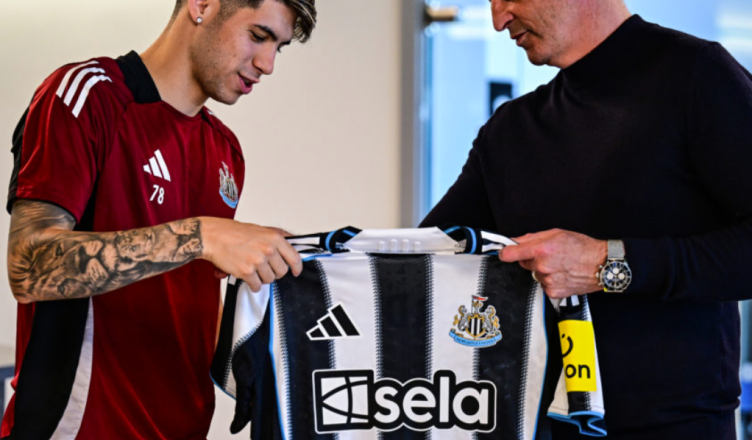Newcastle United’s vision of developing young football talents and building a future filled with promising prospects has faced an unfortunate setback this season.
One of the club’s biggest priorities under the current ownership has been to promote its academy players while recruiting emerging stars with strong potential to grow into first-team regulars.
However, recent developments involving three of their young players Antonio Cordero, Travis Hernes, and Trevan Sanusi have raised concerns about how the club handles its loan strategies.
Over the past few years, Newcastle has invested heavily in youth recruitment. The signing of Yankuba Minteh was a statement move, and although his subsequent loan and sale showed that the club can profit from young talent, not all their developmental plans have been successful.
Australian forward Garang Kuol’s experience also highlighted how difficult it can be for a young player to find stability and growth away from Tyneside.
Despite these setbacks, Newcastle has continued to scout for future stars, hoping to find players capable of making a long-term impact. Unfortunately, the current group of youngsters out on loan have found themselves struggling for minutes, which has cast doubt on the effectiveness of the club’s loan system.

Antonio Cordero, the talented Spanish winger, has had a tough time at Belgian club Westerlo. Despite joining with high expectations, his playing time has been minimal.
The 19yr old has made just six appearances, totaling a mere 83 minutes in league action this season. To make matters worse, he has been dropped from the matchday squad on several occasions and has played just four minutes of football in the past seven weeks.
For a player once considered one of Spain’s most promising young attackers, this lack of involvement is worrying. Cordero’s development appears to have stalled, and his situation raises questions about whether his loan destination truly benefits his career growth.
In the Netherlands, Norwegian midfielder Travis Hernes has endured an even more frustrating experience with Groningen. Despite being named in the squad for six consecutive weeks earlier in the season, the 20-year-old has yet to make his senior debut for the Eredivisie side.
A recent minor injury hasn’t helped, but even before that, his only significant playing time came with the club’s Under-21 team something he could have easily achieved by staying in Newcastle’s development setup. For a player once competing in the English Football League with Shrewsbury Town, the lack of progress on loan feels like a backward step.
Trevan Sanusi, one of England’s most promising young wingers, has also faced his share of challenges. The teenager, who looked on the verge of breaking into Newcastle’s senior squad, joined French side Lorient in hopes of gaining valuable first-team experience.
However, an ankle injury has sidelined him for nine consecutive Ligue 1 matches, meaning he has yet to make his debut. His spell in France has therefore been spent recovering rather than progressing, which is far from ideal for a player at such a crucial stage of development.
The issues facing Cordero, Hernes, and Sanusi highlight a broader concern within Newcastle’s youth development strategy. While sending young players on loan to gain experience is a well-established approach, the choice of clubs and the support structure provided during those spells seem to need a rethink.
These loan moves are meant to provide meaningful game time, improve confidence, and prepare players for the Premier League’s demands but for many of Newcastle’s prospects, the opposite seems to be happening.
Only a handful of recent loans have truly benefited the club, with Yankuba Minteh’s spell at Feyenoord standing out as a success story. In contrast, Garang Kuol and others like Miodrag Pivas have endured similarly disappointing experiences in previous seasons.
It’s clear that Newcastle’s loan department may soon face tough questions regarding its decision-making process and player management. CEO David Hopkinson’s ongoing 100-day review of the club’s operations will likely include a close look at this area, as ensuring that young players develop properly is essential to sustaining long-term success.
Cordero’s talent, evident from his impressive performances at the Under-19 European Championships and previous interest from Spanish giants like Real Madrid, Barcelona, and Atletico Madrid, suggests that a return to Spain might better suit his development.
Sanusi, meanwhile, will hope to overcome his injury and regain momentum, while Hernes must find a way to rebuild confidence and secure regular playing time to continue his growth.
For Newcastle, these struggles serve as a reminder that investing in youth goes far beyond signing young players. It’s about finding the right environments to nurture their abilities, ensuring they play regularly, and maintaining strong communication with loan clubs.
Unless the system improves, the club risks stalling the progress of some of its brightest prospects at a time when the future should be looking much brighter on Tyneside.
